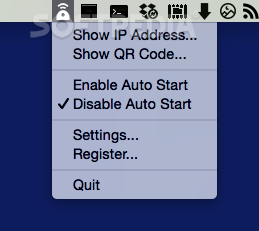

- Remote mouse uninstall how to#
- Remote mouse uninstall software#
- Remote mouse uninstall trial#
- Remote mouse uninstall download#
Remote mouse uninstall how to#
Remote mouse uninstall download#
Download and Installing the Dell Universal Pairing Software.How do I Know if the Receivers and Keyboard and Mouse are Compatible?.What Products use the Dell Universal Pairing Hardware and Software?.See Dell Knowledge Base article Dell Peripheral Manager Usage and Troubleshooting for instructions downloading and using the Dell Peripheral Manager software.
Remote mouse uninstall software#
The company is emphasizing the importance of addressing symptoms such as breathing difficulties along with ongoing prevention and vaccination efforts.NOTE: The only keyboard or mouse that uses the Dell Universal Receiver Control Panel software is the Dell Premier Wireless Keyboard WK717.Īll other Dell branded keyboards and mouses use the Dell Peripheral Manager.“electroCore is supporting a clinical study to evaluate the effect of non-invasive electrical vagus nerve stimulation on respiratory symptoms that occur because of COVID-19.”.
Remote mouse uninstall trial#
Tepper, MD and principal investigator of the clinical trial stated, “patients will now have access to a highly effective, easy-to-use, non-invasive and drug free therapeutic option that will help them regain control of their lives.”Ĭould Bioelectronic Medicine Play a Role in Treating COVID-19 Symptoms?, MD+DI, February 24, 2021 The Relivion system from Neurolief is the first noninvasive multichannel brain neuromodulation system approved by the U.S.A Benzinga columnist profiled BioSig Technologies and its PURE EP product and described the exciting future potential of the field of bioelectronic medicine.įDA Clears Neuromodulation Device for Acute Migraine Pain, Medscape, March 2, 2021.The Future of Medicine is Here: Bioelectronic Medicine, Yahoo! Finance, March 5, 2021 will promote and distribute the gammaCore Sapphire family of products with Medistar as the exclusive distributor. Following the granting of regulatory approval from the Australian Therapeutic Goods Administration (TGA), electroCore, Inc.Announces Exclusive Distribution Agreement with Medistar Following Regulatory Approval in Australia, press release, February 28, 2021 Kevin Tracey is quoted explaining the absence of side effects - “It’s a powerful concept that, frankly, scientists are quite accepting of…but the idea of adopting this into practice is going to take another 10 or 20 years, because it’s hard for physicians, who’ve spent their lives writing prescriptions for pills or injections, that a computer chip can replace the drug.”ĮlectroCore Inc. An article sponsored by Northwell outlines the science of vagus nerve stimulation and the advantages of bioelectronic medicine over pharmaceutical drugs.How tiny bioelectronic implants may someday replace pharmaceutical drugs, Big Think, February 24, 2021 The daily science publication ZME Science featured an article describing the future of bioelectronic medicine, referencing the “seminal study” by GSK as well as a 2019 report by McKinsey that predicted the bioelectronic market will “represent a multi-billion-dollar opportunity in the near future even with ‘modest penetration.’”.More Bioelectronic Medicine Headlines from March: Industry NewsĮlectroceuticals, the bioelectronic medicine of the future, ZME Science, March 5, 2021 The study made the cover of the March 17th issue of Science Advances. “The advances spurred by this research will offer a new frontier in the way we study and understand the brain…Now that the 3-D platform has been developed and validated, we will be able to perform more targeted studies on our patients recovering from neurological injury or battling a neurodegenerative disease.” Colin Franz described the exciting implications in SciTech Daily on March 20th: The research, led by scientists from Northwestern University, Shirley Ryan AbilityLab and the University of Illinois at Chicago, combines sophisticated 3D bioelectronic systems with advanced 3D human neural cultures. Scientists have found a way to create “mini-brains” that have the potential to dramatically expand our knowledge about the organ.


 0 kommentar(er)
0 kommentar(er)
